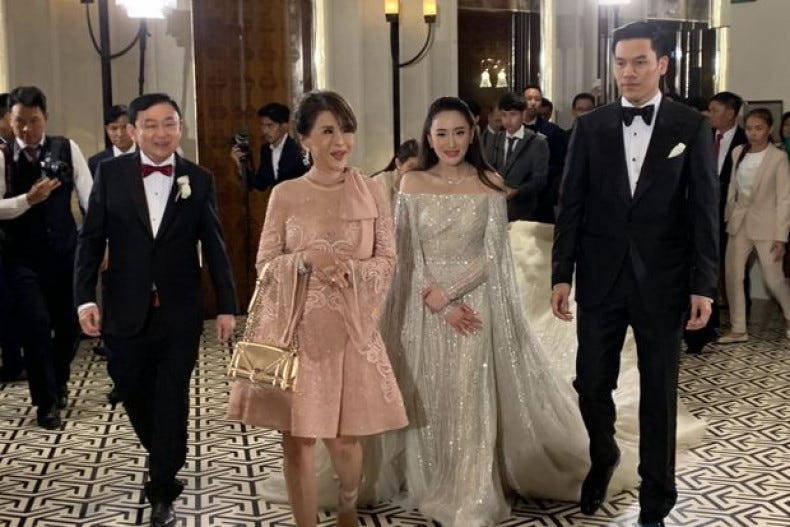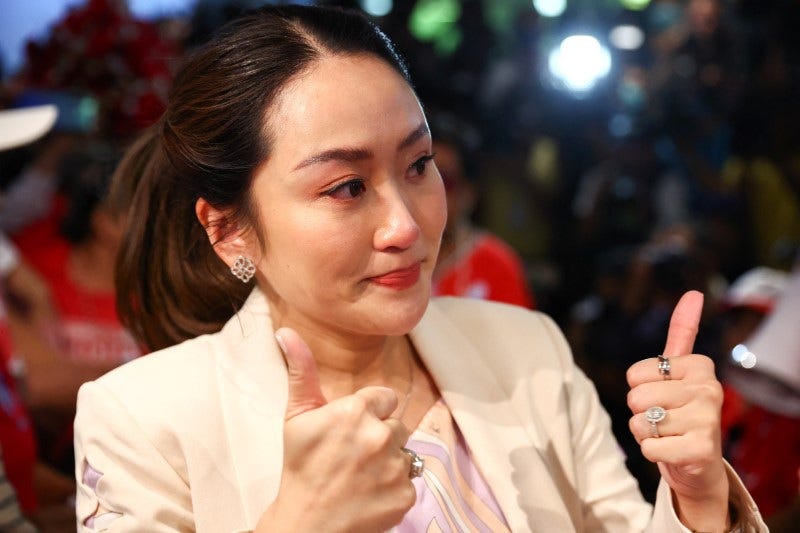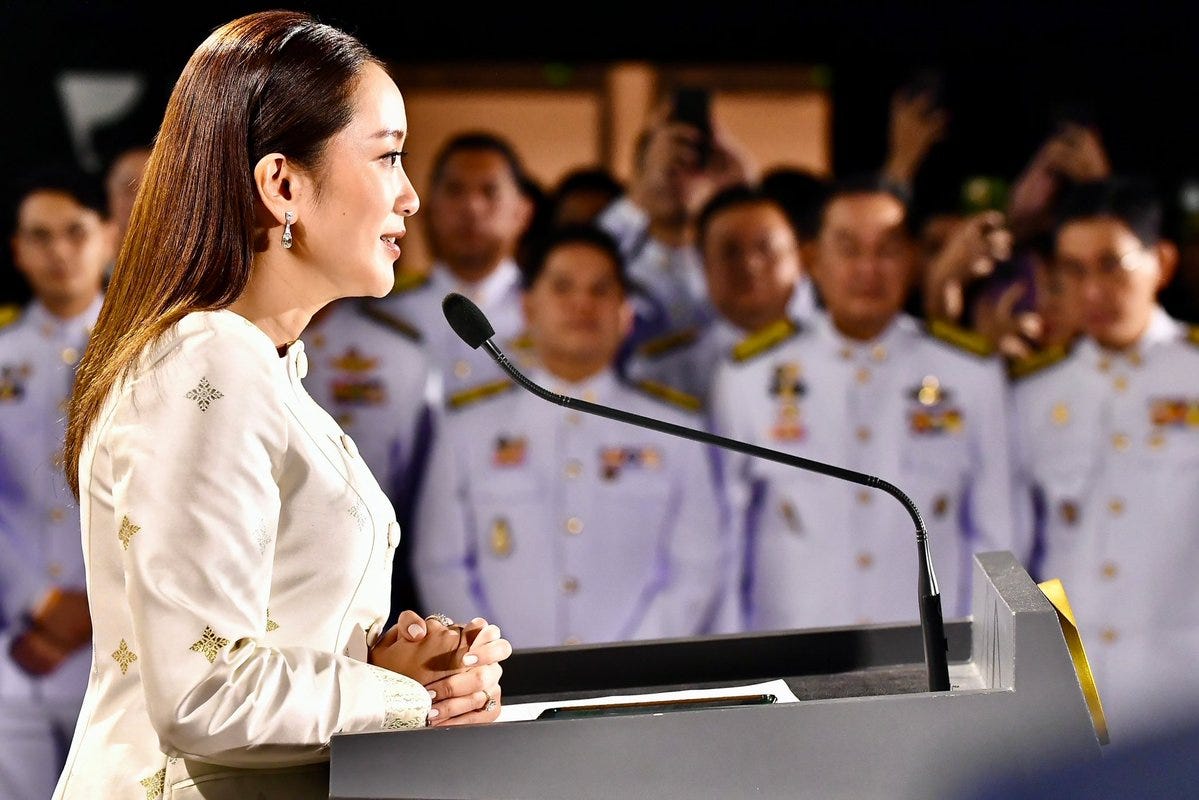Paetongtarn Shinawatra: Thailand's Youngest Prime Minister and a New Chapter in Indo-Thai Relations
Diplomatic experts are optimistic that bilateral relations between the two countries are set to flourish under the leadership of the new Prime Minister.

A New Era in Thailand's Political Landscape
Thailand has witnessed a historic event with the election of Paetongtarn Shinawatra as the country’s new Prime Minister. At just 37 years old, Paetongtarn becomes the youngest person and only the second woman to ever hold the highest office in the nation. Her rise to power is not just a reflection of her capabilities but also a testament to the enduring influence of the Shinawatra family in Thai politics. Confirmed by a convincing parliamentary vote of 319 in favour, following the royal endorsement, Paetongtarn steps into this role following the dismissal of her predecessor, Srettha Thavisin, over an ethics violation. Her ascension marks a significant shift, promising a blend of youth and experience in the governance of Thailand.
The Shinawatra Legacy Continues
Paetongtarn's political journey is deeply intertwined with her family’s legacy. She is the third member of the Shinawatra dynasty to assume the role of prime minister, following in the footsteps of her father, Thaksin Shinawatra, and her aunt, Yingluck Shinawatra. Both her predecessors were instrumental in shaping modern Thai politics, and Paetongtarn’s leadership is expected to bring fresh perspectives while continuing the family’s populist policies. Her relatively recent entry into politics, having joined the Pheu Thai Party in 2021 and quickly rising to its leadership, showcases her rapid political ascent and the trust her party and supporters have placed in her.
A Foundation of Strong Education and Business Acumen
Born in Bangkok and educated at prestigious institutions, Paetongtarn has a solid foundation in both political science and international business. Her education from Chulalongkorn University and the University of Surrey equipped her with the knowledge and skills necessary for governance. Before her political career, she held significant positions in the business world, including being the largest shareholder of SC Asset Corporation and holding directorships in multiple companies. This blend of political heritage and business expertise positions her uniquely to tackle Thailand’s economic challenges.

Personal Life and Values
Paetongtarn’s personal life reflects her modern outlook and progressive values. Married to a commercial pilot, she is a mother of two young children, balancing her roles as a leader and a parent. Her political stances are aligned with social liberalism, advocating for LGBT rights and pushing for constitutional reforms while maintaining respect for traditional Thai values such as the lèse-majesté laws. Her policy preferences, which include ending military conscription and supporting economic liberalism, resonate with Thailand’s younger generation, who seek reform and progress.
Challenges and Opportunities Ahead
As Paetongtarn takes office, she faces a complex set of challenges, including reviving Thailand's struggling economy, addressing her party's fluctuating popularity, and navigating the intricate dynamics between Thailand's military establishment and the populist movements that her party often represents. The dissolution of the Move Forward Party and the reorganisation of opposition forces add to the political landscape's complexity. Her leadership will be tested as she seeks to unify a nation with diverse political opinions and steer Thailand towards stability and growth.
Navigating the Power of the Monarchy
Thailand's monarchy, long revered as a stabilising force, continues to hold significant sway in the country's politics. The late King Bhumibol Adulyadej, who reigned from 1946 to 2016, was seen as a unifying figure and a beacon of stability, earning deep respect from the Thai people. His son, King Vajiralongkorn (Rama X), ascended to the throne in 2016, but has yet to garner the same widespread reverence. Despite this, the monarchy remains a deeply powerful institution, protected by Thailand’s stringent lèse-majesté laws, which criminalise criticism of the royal family. As Thailand’s new prime minister, Paetongtarn Shinawatra must tread carefully in her interactions with the monarchy, ensuring she aligns with the monarchy’s esteemed role in Thai society while navigating the political complexities that come with it.
Complex Relations with the Military
The Thai military has played an outsized role in the nation's political landscape, often stepping in through coups to maintain what it views as the traditional power structure and protect the monarchy. Since the end of absolute monarchy in 1932, Thailand has witnessed numerous military interventions, including the most recent coup in 2014. The Shinawatra family, including Paetongtarn’s father Thaksin and her aunt Yingluck, have historically faced opposition from the military, with both being ousted by military-led coups. Paetongtarn’s relationship with the military is likely to be complex and fraught with tension. While her Pheu Thai Party has traditionally been at odds with the military establishment, the recent alliance with military-backed parties indicates a pragmatic shift. Balancing this fragile alliance while maintaining her party’s populist agenda will be key to her political success.

Deep Historical Ties Between India and Thailand
The relationship between India and Thailand is steeped in a rich history of trade and cultural exchange that dates back over two millennia. Ancient maritime trade routes connected southern Indian ports to Southeast Asian kingdoms as early as the 3rd century BCE, facilitating the flow of goods, ideas, and religions. Buddhism, which originated in India, was introduced to Thailand by Emperor Ashoka’s missionaries around this time and has since been deeply embedded in Thai culture as the state religion. Additionally, Hinduism also made its mark on Thai society, influencing royal ceremonies, divine kingship concepts, and various cultural traditions. Throughout the Sukhothai and Ayutthaya periods, Indian merchants and Brahmins further solidified these ties, leaving a lasting impact on Thai language, literature, art, dance, and traditional medicine.
Strong Contemporary Bilateral Relations
In modern times, the relationship between India and Thailand has evolved into a robust partnership across political, economic, and cultural spheres. Both nations have committed to strengthening their ties, with ambitious goals like doubling bilateral trade from $17.7 billion to $35 billion by 2027. Projects like the India-Myanmar-Thailand Trilateral Highway aim to enhance connectivity, further boosting economic collaboration. Cultural exchanges remain vibrant, supported by initiatives such as the temporary visa exemption scheme that facilitated the visit of over 1.6 million Indian tourists to Thailand in 2023. The Indian diaspora, particularly the Sikh—about 70,000, forming one of the largest Indian communities in the country— and Hindu communities, plays a significant role in Thailand’s multicultural fabric, maintaining their cultural identity while integrating into Thai society. Hindu temples and traditions continue to thrive in Thailand, reflecting the enduring influence of India’s soft power and the deep-rooted connections between the two nations.
Strengthening Indo-Thai Relations
Paetongtarn’s leadership comes at a crucial time for Thailand’s international relations, particularly with India. Prime Minister Narendra Modi was among the first world leaders to congratulate her on her election, underscoring the importance of the Indo-Thai relationship1. India and Thailand share a rich history of cultural and economic exchanges, dating back over two millennia. Today, both nations are committed to strengthening their ties, with a focus on increasing bilateral trade, enhancing connectivity projects like the India-Myanmar-Thailand Trilateral Highway, and deepening cultural exchanges.
A Bright Future for India-Thailand Collaboration
Paetongtarn’s youthful leadership, coupled with her strategic vision, presents an opportunity to further solidify Thailand’s position as an influential member of ASEAN and a key partner in India’s Look East policy. The robust relationship between the two nations, grounded in historical ties and shared values, is poised to grow stronger under her tenure. With Thailand’s dynamic leadership and India’s strategic outreach, the future looks bright for both countries as they navigate the challenges and opportunities of the 21st century, fostering a partnership that benefits the region and beyond.
Citations
Thailand's New Prime Minister:
Historical and Cultural Ties Between India and Thailand:
PM Modi’s Tweet: “Congratulations @ingshin on your election as the Prime Minister of Thailand. Best wishes for a very successful tenure. Look forward to working with you to further strengthen the bilateral ties between India and Thailand, that are based on the strong foundations of civilisational, cultural and people to people connect.”





